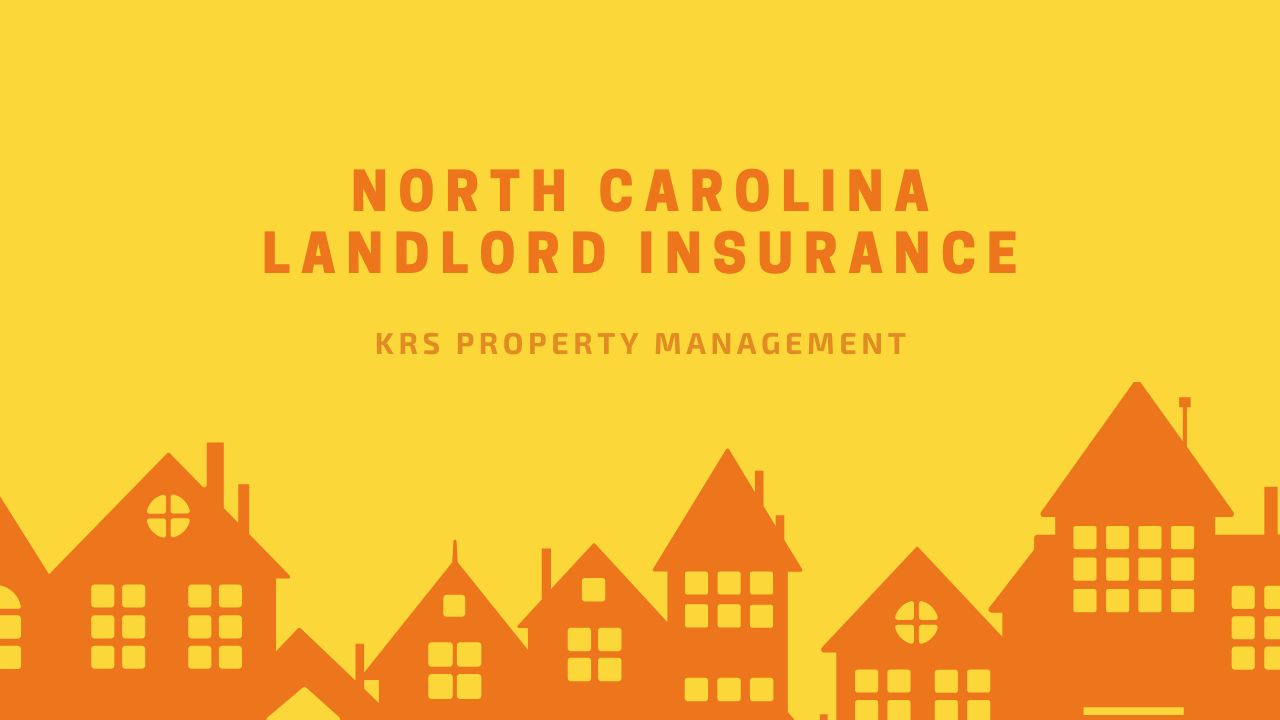
North Carolina is attractive to property investors as it has a high rental market demand. This leads to lower risks when purchasing a property. However, North Carolina can be prone to natural disasters with heavy exposure to floods and tornadoes, which result in extensive damage to properties.
Due to this risk, landlord insurance is crucial. Not only will it add more protection for the renters, it will also keep your finances safe. You won’t have to watch your funds dwindle down from steep medical expenses if an accident occurred in your property or a tenant got injured. With landlord insurance, you gain more peace of mind.
Defining North Carolina Landlord Insurance
If you want more protection for your North Carolina investments, then it is recommended to purchase landlord insurance. Although it is designed more for landlords than renters, there is no stipulation in the landlord laws to sign up for it. But you should consider your heavy exposure to risk without one. Repairs alone can set you back greatly.
Another term for landlord insurance is rental property insurance, which safeguards you from property damage, liability, and other hefty expenses associated with dangerous situations.
How Landlord Insurance And Homeowners Insurance Are Different
From the term itself, landlord insurance is created for rental property owners who agreed to let other people stay in their investment properties.
Here are the other ways landlord insurance can be differentiated from homeowners insurance:
Liability coverage
Policy cost (landlord insurance tend to be more costly)
Homeowner insurance is designed for residents
What is The North Carolina Landlord Insurance Coverage?
While insurance policies are diverse based on the company, a standard coverage still apply such as:
Coverage on dwelling
Insurance on personal property
Insurance on additional structures
Coverage on liability
Rental income insurance on loss
Although there are extra insurance coverage options offered, these are not automatically offered. In North Carolina, landlords need to fortify the insurance coverage by adding flood insurance and enhanced storm damage insurance.
As mentioned earlier, North Carolina is a high-risk state when it comes to flooding, so rental spaces need more coverage to reduce the risk when a hurricane occurs. This is also applicable if your rental unit is located in a flood zone area.
Review your landlord insurance to check if your policy includes additional coverage. If not, it is advisable to obtain a separate policy with the National Flood Insurance Program.
Items Not Covered by North Carolina Landlord Insurance
You can always add more options to your landlord insurance policies, but here are some items that are not likely to be found in your landlord insurance, such as
Renter Possessions: Ask your tenant to sign up for renters insurance as protection for their belongings from possible damage from an accident or theft.
Wear and tear: Over time it is expected for furniture or appliances to devalue from multiple uses and the insurance company will not cover repairs or replacements of these rental furnishings.
Intentional damage: Should your renter cause heavy property damage with intention, the insurance company will not cover this incident.
How Landlord Insurance Help North Carolina Rental Property Owners
North Carolina will leave it up to landlords to decide on getting landlord insurance but it is best to purchase one to protect your property asset over the long term. Natural disasters can be unpredictable and having a landlord insurance to rely on can help you massively in rebuilding your rental unit when unexpected situations arise.
In case your renter ends up injured while residing in your rental, you will feel less stressed with covering associated medical costs, which can get hefty. With dependable landlord insurance, you have fewer worries about paying for severe damage from situations out of your control.
How Landlord Insurance Costs Are Computed
Landlord insurance can be affected by multiple factors, such as
The length of time your property was constructed and its state
Size, type, and value of the property
Exposure to risks in your specific area
Limits on coverage
Deductibles
Extra coverage
Previous claims
Coupled with high risks are high costs and you can get lower rates if you have no recent claims from your previous insurance company. Although you need to pay for landlord insurance, there are strategic moves to reduce your premiums and get the coverage you prefer.
Effective Tips to Lower Your Insurance Rate:
Renovate Your Rental Unit Often.
Since your North Carolina rental property is likely to face extreme weather, you need to constantly keep a close watch on it by investing in durable roofing, reinforcing windows, and limiting expected flood damage. Doing this initiative can lead insurance companies to offer a lower insurance policy rate.
Increase Your Deductibles.
When claiming, pay more out-of-pocket for lower monthly insurance premiums. It depends on your priorities but consider this if you want to have a low insurance payment monthly.
Screen Tenants Extensively.
With few insurance claims, insurance companies tend to set low rates. One of the ways to reduce damage to your rental is by accepting good tenants, and to achieve this, your tenant screening process must be detailed. Set a criteria list and ensure you follow it when evaluating prospective tenants.
Bottom Line
Whether you have a small or large rental property in North Carolina, it is crucial to obtain a landlord insurance policy to protect your investment. You can also partner with a dedicated property manager to oversee your rental business operation.
This lets you access professional services in screening tenants, maintaining the rental property, conducting property inspections, collecting the rent, advertising property vacancies, and managing tenants.
Contact KRS Property Management for expert advice today!






